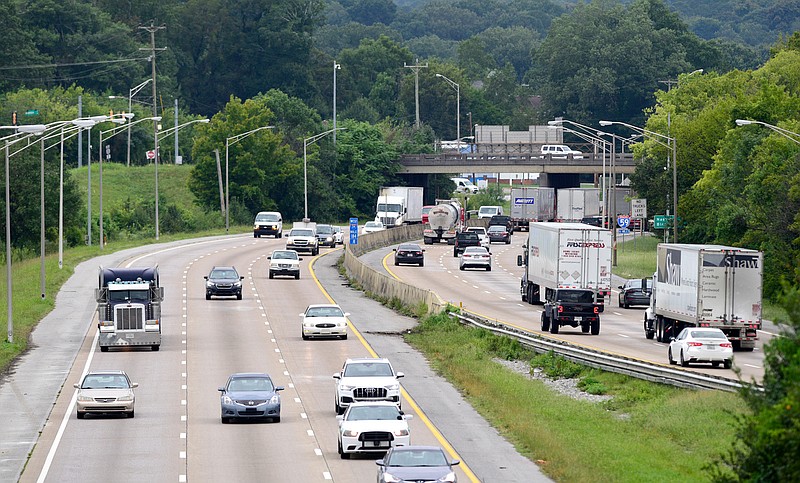With better roads, cheaper gas and relatively lower costs for repairs than in most other states, Tennessee motorists enjoy the lowest average costs for owning and maintaining a car, according to a new study ranking driving conditions among the 50 states.
The personal finance website WalletHub again rated Tennessee No. 1 for the cost of ownership and maintenance of a vehicle based on gas prices, road conditions, insurance premiums and repair expenses. Tennessee was judged to have the best road quality among all states, with only 14% of Tennessee's major roads in poor or mediocre condition.
A report by the Road Information Program estimates that driving on deteriorated roads costs Tennessee motorists $1.1 billion a year - $209 per driver - in the form of additional repairs. But that is less than half of the U.S. average of $564 a year for the average extra costs for repairs for driving on aging roadways, and in some states, the extra costs total nearly $1,000 a year.
"In Tennessee, we do have good roads because it's been a priority of the state to stay on a regular resurfacing and maintenance cycle," said Kent Starwalt, executive director for the Tennessee Road Builders Association, in a phone interview. "If you defer maintenance, it ultimately becomes more expensive to maintain that road."
As a less densely populated state in the South, Tennessee also suffers less from traffic congestion than most urban states and has fewer potholes and weather damage to roads than what Northern states must deal with from more ice, snow and freezing temperatures. Even then, Tennessee's budget for fixing potholes this year of nearly $9.2 million is up 2.8% from last year and is up nearly 28% from three years earlier.
Tennessee has long been ranked among the best states for road quality. According to CNBC's 2021 study, "America's Top States for Business," Tennessee is fourth overall in the category of "Infrastructure."
"The Tennessee Department of Transportation has maintained a high level of road quality for many years and remained debt free while doing so," said Rae Anne Bradley, community relations officer for the Tennessee Department of Transportation, in a statement in response to the new state rankings on roads. "TDOT's pay-as-you-go philosophy remains intact as we continue to spend only the revenue provided through our state highway user fees and federal funds."
Tennessee is one of only five states in the nation without transportation debt.
Tennessee also benefits from cheaper gasoline than many states. The AAA daily gas price report Wednesday said Tennessee had the eighth lowest price for regular fuel with an average cost just over 28 cents a gallon below the U.S. average. With a lower cost of living, repair expenses and insurance premiums in Tennessee are also less expensive than in many other states.
But while Tennessee has better roads and cheaper fuel, the state's safety record is among the 10 worst states, according to the WalletHub analysis. Tennessee has the ninth worst safety record based on a dozen metrics of motorists' behavior, driving, insurance coverage and collision rates.
As a result, the WalletHub broader study of the "Best & Worst States to Drive in" ranked Tennessee No. 8 overall among the 50 states. Georgia ranked No. 6, and Alabama placed No. 16 based on WalletHub's analysis of 31 key indicators of a positive commute.
Contact Dave Flessner at dflessner@timesfreepress.com or at 423-757-6340.
Cheapest states for operating a car
1. Tennessee2. Ohio3. Wisconsin4. Oklahoma5. Iowa6. Kentucky7. North Carolina8. Georgia9. Virginia10. AlabamaSource: WalletHub based on average gas prices, insurance premiums, maintenance costs and road quality.
